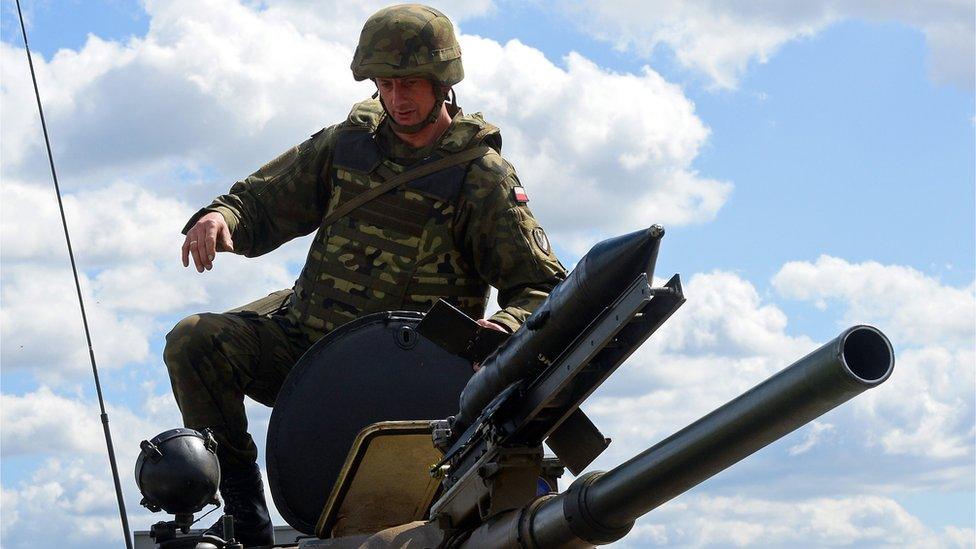Sweden brings back military conscription amid Baltic tensions
- Published
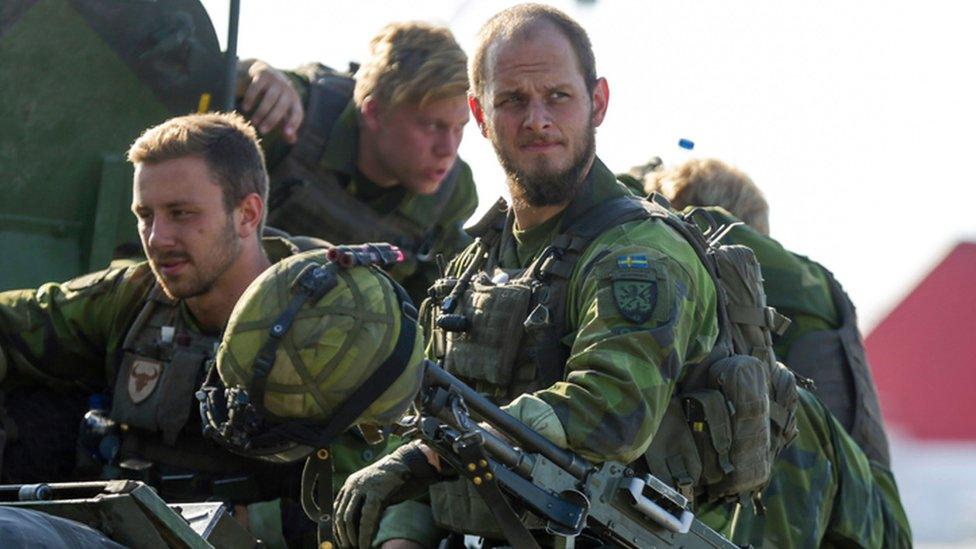
The Swedish military has struggled to get enough volunteers in recent years
The Swedish government has decided to reintroduce military conscription - a move backed by the country's MPs.
The decision means that 4,000 men and women will be called up for service from 1 January 2018, a defence ministry spokeswoman told the BBC.
They will be selected from about 13,000 young people born in 1999, who will be asked to undergo a military assessment, Marinette Nyh Radebo said.
Non-aligned Sweden is worried about Russia's Baltic military drills.
In September, a Swedish garrison was restored to Gotland, a big island lying between the Swedish mainland and the three ex-Soviet Baltic states.
Why is this happening?
Ms Nyh Radebo said the return to conscription, external was prompted by "the security change in our neighbourhood".
"The Russian illegal annexation of Crimea [in 2014], the conflict in Ukraine and the increased military activity in our neighbourhood are some of the reasons," she said.
Sweden's conscription remains highly selective, however. The total obliged to serve is a small fraction of more than 90,000 Swedes who reach conscription age every year.
How will it work?
The 13,000 who undergo the military tests will be a mixture of volunteers and conscripts. "You are part of the conscript system once you've done the tests - men and women are treated equally," Ms Nyh Radebo said.
"The authorities choose the ones who are willing, interested and motivated."
Russian menace pushes Sweden towards Nato
Norway breaks tradition to host US troops
Baltic warning of Russian test for Nato
Poland to sign up 35,000 paramilitaries
The conscripts will serve for nine to 12 months. The aim is to encourage them either to become military professionals or, later, to join the reserves.
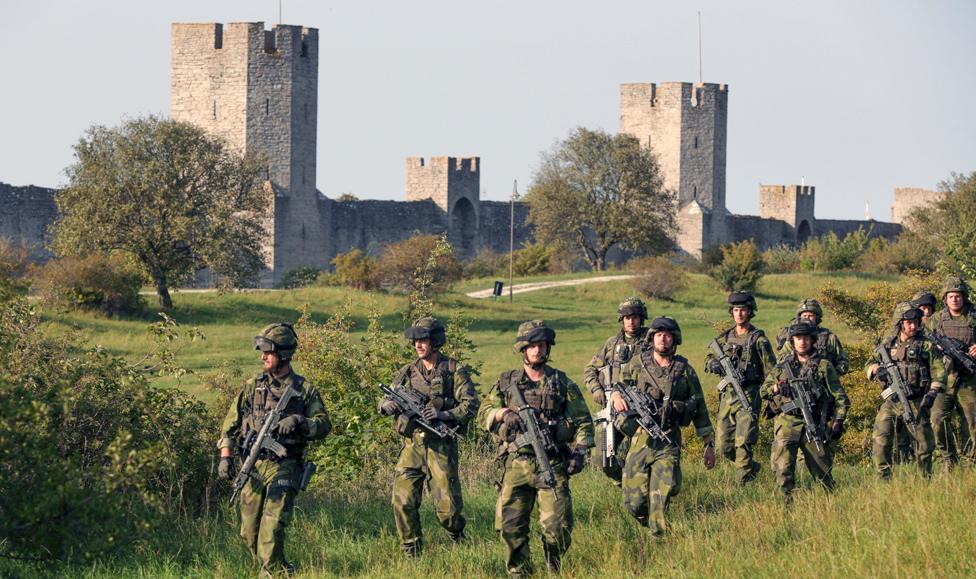
Visby, Gotland: Sweden has reinstated a military garrison on the strategic Baltic island
"If we want full and trained military units, the voluntary system needs to be complemented by compulsory military service," Defence Minister Peter Hultqvist told Swedish public broadcaster SVT.
Sweden had military conscription until 2010, but previously only men were drafted.
How does this impact regional security?
Ms Nyh Radebo said that "70% of parliament is behind the decision to strengthen the military and co-operation with the countries around us".
The closest co-operation is with Finland, she added.
Sweden and Finland are not in Nato, but co-operate closely with the alliance. Their Nordic neighbours Norway and Denmark are in Nato.
The Swedish recruitment system will be modelled on Norway's, Ms Nyh Radebo said.
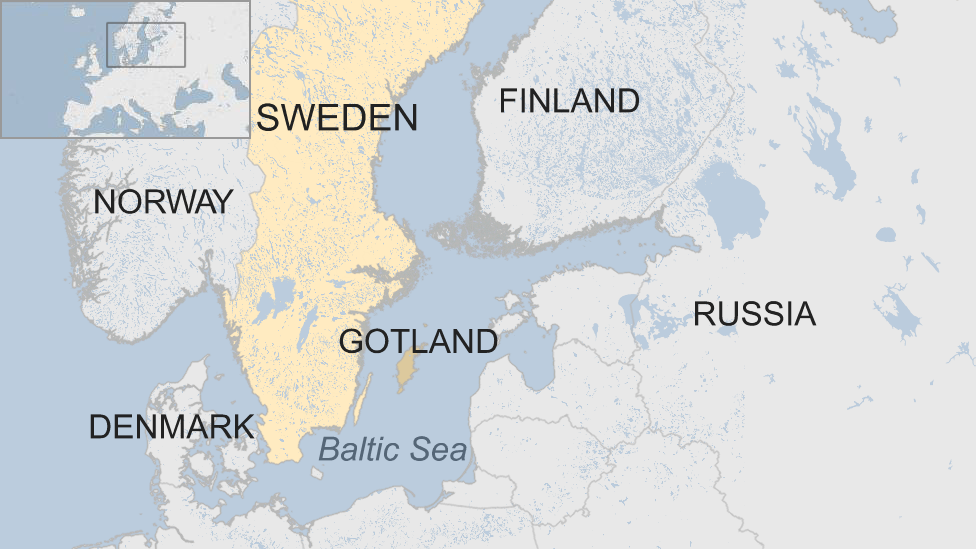
A Swedish government report on defence priorities, external for 2016-2020 says recruitment of reserve squad leaders, soldiers and sailors has "proved to be problematic".
It details a range of measures to boost Swedish military capabilities, citing "the deteriorating security situation in Europe, particularly in light of the Russian aggression against Ukraine". Deeper defence co-operation with Finland is "critical", it says.
According to a 2015 research paper , externalby Barbara Kunz of the IFRI Security Studies Center, Sweden has about 52,000 full-time military personnel - 20,000 of them permanent staff and most of the others Home Guard members.
Which other European countries have conscription?
Most of the 28 EU member states abolished military conscription. France and the UK - the main pillars of Nato defence in western Europe - made their armed forces fully professional (France in 2001, the UK in 1963).
Germany suspended conscription in 2011, but provision for it remains in the constitution. There is a debate now about reintroducing some form of national service.
During the Cold War, national service meant that West Germany could mobilise 495,000 soldiers and boost the numbers to about 1.2 million if necessary with reservists.
Turkey has the second-largest armed forces in Nato, after the US military. Turkey has conscription for all men over the age of 20. They must serve between six and 15 months.
Neighbouring Greece - a Nato partner - has compulsory military service (nine months) for men from the age of 19. Cyprus - a longstanding source of Greek-Turkish tension - also has conscription.
Denmark and Norway have limited conscription, but their forces are overwhelmingly professional. Estonia and Lithuania - small Baltic states wary of Russian moves near their borders - have similar recruitment policies.
Finland however requires all men, external from the age of 18 to serve up to 347 days in the armed forces. They are later counted as reserves and can be required to take military refresher courses. For women military service is voluntary.
In Russia all men aged 18-27 have to spend a year in the armed forces.
Ukraine brought back conscription in 2014, when tensions with Russia escalated.
Switzerland operates a militia system, whereby men have to serve periods in the armed forces from 19 to 34 years of age, and keep their equipment at home.
- Published4 February 2016
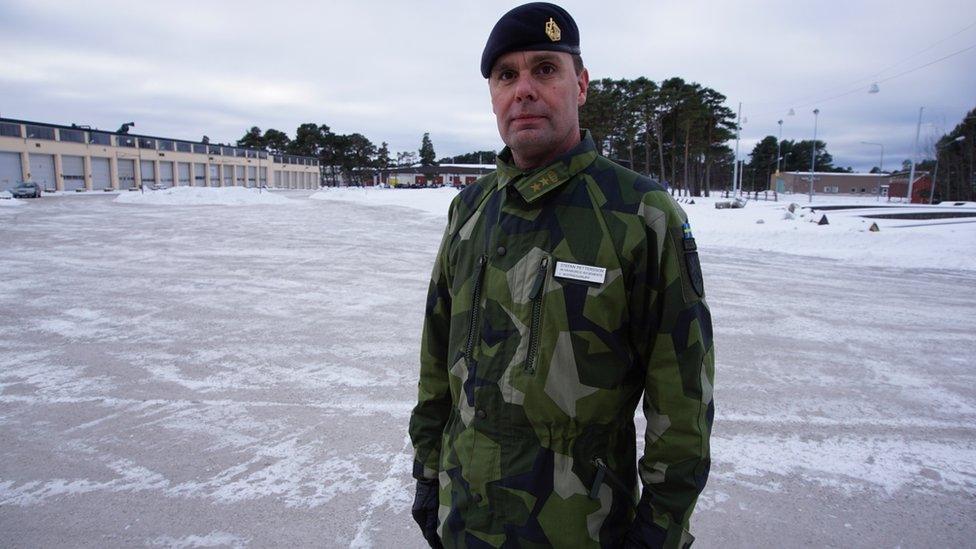
- Published18 November 2016
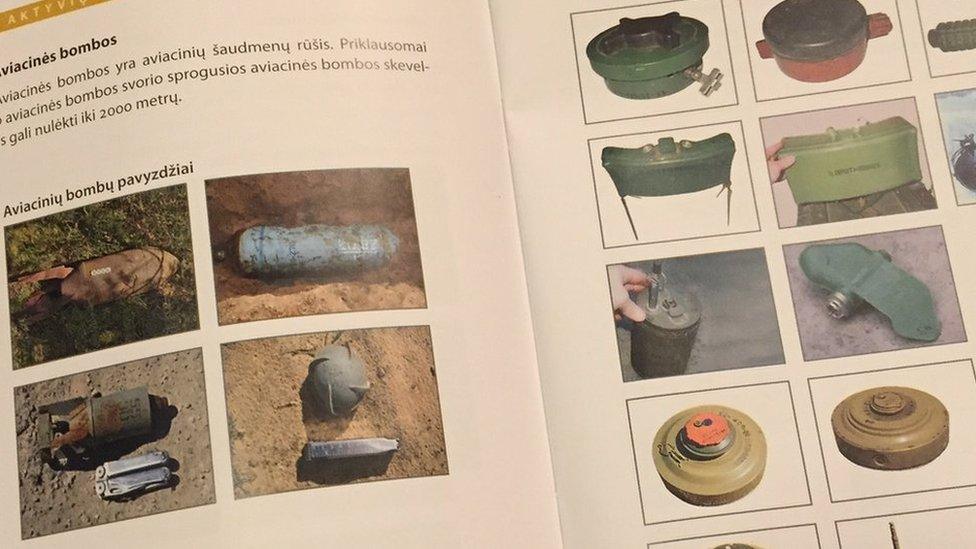
- Published25 October 2016
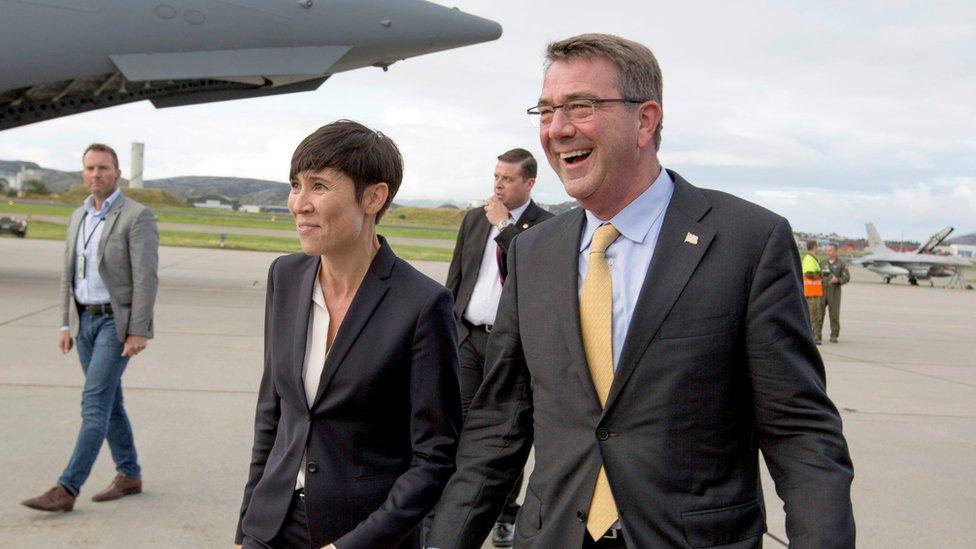
- Published23 August 2016
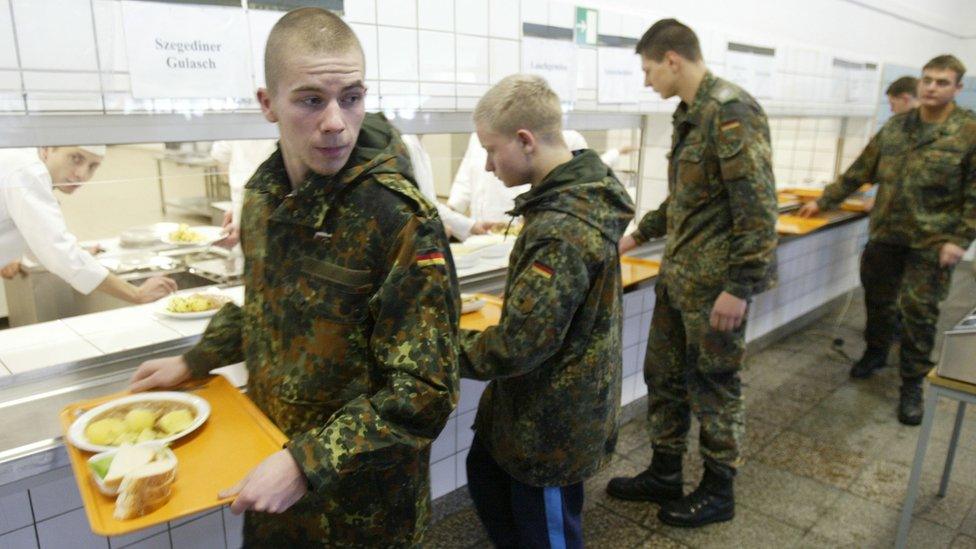
- Published7 October 2016
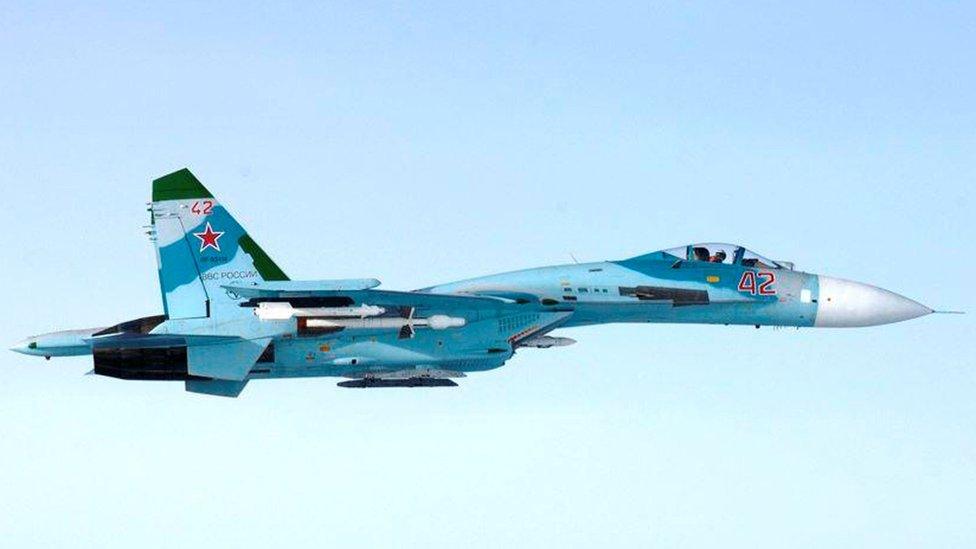
- Published3 June 2016
